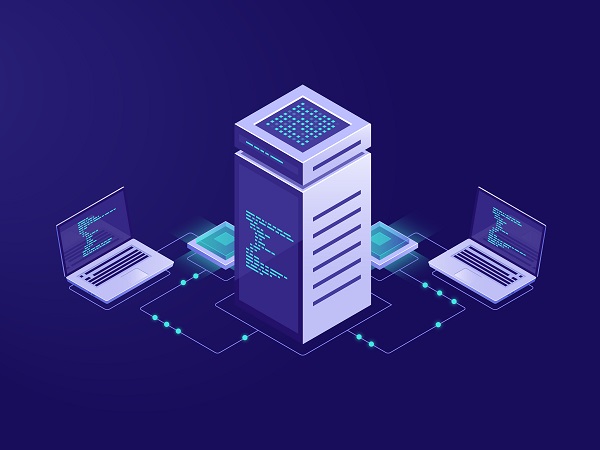Automation, automation, automation!
If there was one buzzword to define the state of technology as we move into the 2020s, it’s automation.
Automation is impacting every aspect of IT, from data analysis and digital marketing to IoT. Software development is one major industry that is now being totally transformed by automation.
The good news – more and greater automation tools for development and programming are available.
Automation and the rise of DevOps in programming
DevOps is another IT buzzword you may be hearing more of as of late. It is a combination of the terms development and operations. The phrase refers to the combination and collaboration of software developers and IT operations workers – whether they are system engineers, security experts, support staff, sysadmins, and more.
If you are running a small IT consulting business, your entire team probably already wears all sorts of different hats at once – making the term “DevOps” to be redundant – as you are already incorporating that type of collaboration naturally.
You may be wondering, “what’s the big deal?”
However, for larger organizations, improving the communication and synergy between development teams and IT operations teams can make a huge difference to the overall productivity of both.
Furthermore, the exact definition of DevOps is still being bantered about. It can be seen as more than just the combination of “Dev” and “Ops.” For some, DevOps is about getting everyone onboard the entire software life cycle, and building quickly evolving “resilient systems at scale.”
And, whether you are running a small consulting company or managing a large multi-team department that spans the globe, the modern concept of DevOps is important to grasp. The new focus on automation in software development is in part an outgrowth of the DevOps philosophy, which, as mentioned, touches upon the greater ideal of building resilient systems.
The benefits of software development automation
Software development automation can enable the creation of more resilient systems because it brings so much to the table for developers. Here are just a few of the benefits:
1. The entire software development life cycle is faster
Software automation, along with the entire DevOps philosophy, works to speed up application development and systems implementation.
2. The chance of human error is lessened
Human error is always a factor when doing software development. It can affect code and it can also affect the environment within which code is developed.
For example, when setting up development and test environments, it can sometimes be all too easy to lose consistency across different environments. Slight variations or outright errors in configurations can make development more difficult and debugging more challenging.
Automation tools can help improve the consistency of the environments within which developers work.
3. Automation improves collaboration
Code that is containerized (see below) and more portable can improve collaboration between development teams. Automation can help collaboration in other ways as well.
10 great development tools your team needs to try
Getting started with automation for software development is not that difficult. The challenge can be settling on the right tools with so many great options to choose from. Here are some that your development team should try:
1. Docker
Docker excels at “containerizing” applications, which makes them portable while also enhancing security. Docker makes it easier for developers to create, deploy and run applications while using containers. Using Docker, developers can put all parts needed in development, like libraries and other dependencies, in one container and ship it as a single package. This technology will increase productivity and reduce the time it takes to bring an application to the market.
Additional Docker registries are available that enhance the system, such as the Artifactory Docker Registry, which offers full automation utilizing the REST API and JFrog CLI.
2. Kubernetes
One of the hottest software development automation tools for 2019 is Kubernetes. This open-source system was launched by some Google engineers who wanted to create a way to manage containers at scale.
Kubernetes, which also goes by K8s, is an open-source system that can automate deployments, scaling and management of the container applications built with Docker. While Docker created the standard for packaging, Kubernetes coordinates and schedules the containers and ensure that all containers talk to each other.
3. Ansible
Dubbed “automation for everyone,” Ansible is a very flexible configuration management tool that simplifies the set up of your systems infrastructure. This easy-to-use automation tool uses the Infrastructure as Code (IAC) model.
Ansible prides itself on being super simple to set up. It can also do IT orchestration, which will create a chain of events which will then run tasks in order on several different servers or devices.
Ansible is written in Python and doesn’t have to set up a client-server environment- rather it can be run from any machine.
4. Jenkins
Jenkins is a DevOps tool that monitors the execution of repeated tasks. It runs on Windows, Mac OS X, and Linux operating systems, and integrates well with other DevOps automation tools. Many teams use Jenkins to quickly find an issue. It can help companies scale and quickly find errors.
5. Puppet Enterprise
This popular cross-platform configuration management platform is another fantastic system to support the automation of infrastructure management. This tool eliminates manual work for software delivery and helps deliver software faster. Puppet Enterprise can model and manage an entire environment and provide real-time reporting. It will inspect and report on all packages running across an infrastructure.
6. Graylog
Graylog is a powerful log management tool that provides a free and open-source option. Graylog can automatically archive data, do the DevOps team can get this task off their plate. Additionally, this tool can search and analyze machine data collected from IT applications.
7. Code Climate
Over time, even the best code can become old and unhealthy. Code Climate is a DevOps tool that monitors the health of the code from start to end. It can identify issues earlier so the team can work to solve the issues before it becomes a bigger problem.
Code Climate is trusted by several teams and analyzes over 2 billion lines of code daily. It can also automate code for review before merges. This will help keep the code manageable and prevent bugs and issues from creating overwhelming problems.
8. Juju
Juju is an open source application modeling tool that redirects the operational overhead of software development by supporting quick deployment, configuring, scaling and integration of operational tasks. Juju can work across both public and private cloud services.
Juju offers a powerful GUI and command-line interface and provides details logs to resolve issues. DevOps teams are able to deploy services to a targeted cloud in seconds.
9. ProductionMap
ProductionMap is unique in that it allows DevOps team to drag and drop to automate and execute processes. This tool can take complex automation and boil them down to simple steps that create powerful automation.
This integrated visual platform helps make automation development fast and easy and is supported by a team of IT professionals.
10. Stackify
A great solution for intelligent orchestration for software-defined data center, Stackify eliminates messy configurations. This tool provides instant feedback to check what .net or Java web apps are doing.
Stackify shows real-time logs, errors queries and allows the team to find and fix bugs before production.
Automation is the Future
Software developing is changing, and the biggest advancement is the integration of automation tools into the software development life cycle. The more your team leverages these tools, the faster and better your code output can be.
Furthermore, the advancement of DevOps approaches, along with automation, means that application development needs to be leaner and meaner if you want to truly compete. Fortunately, with so many new and exciting tools available, development automation can be easy and accessible.















